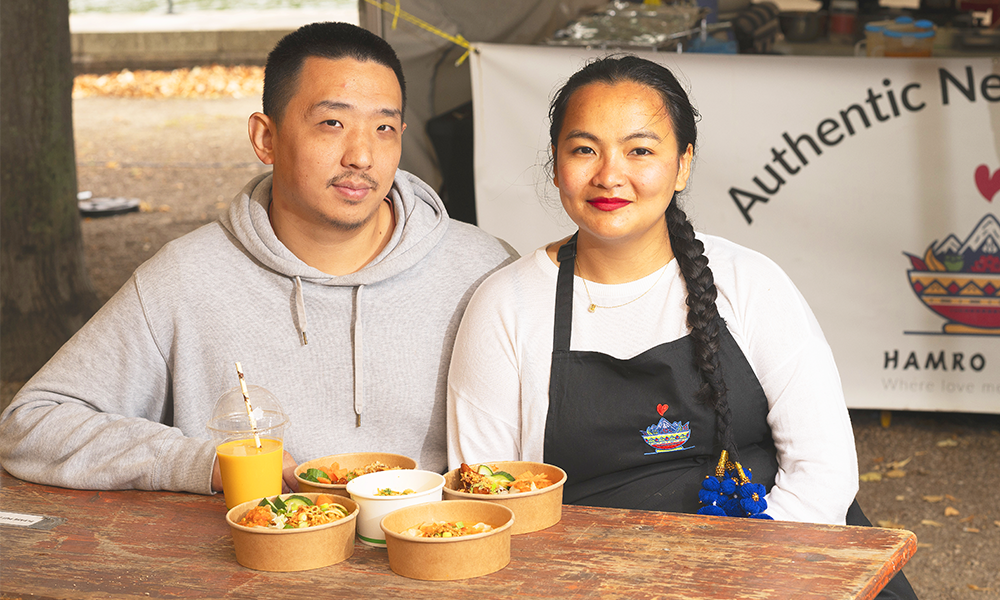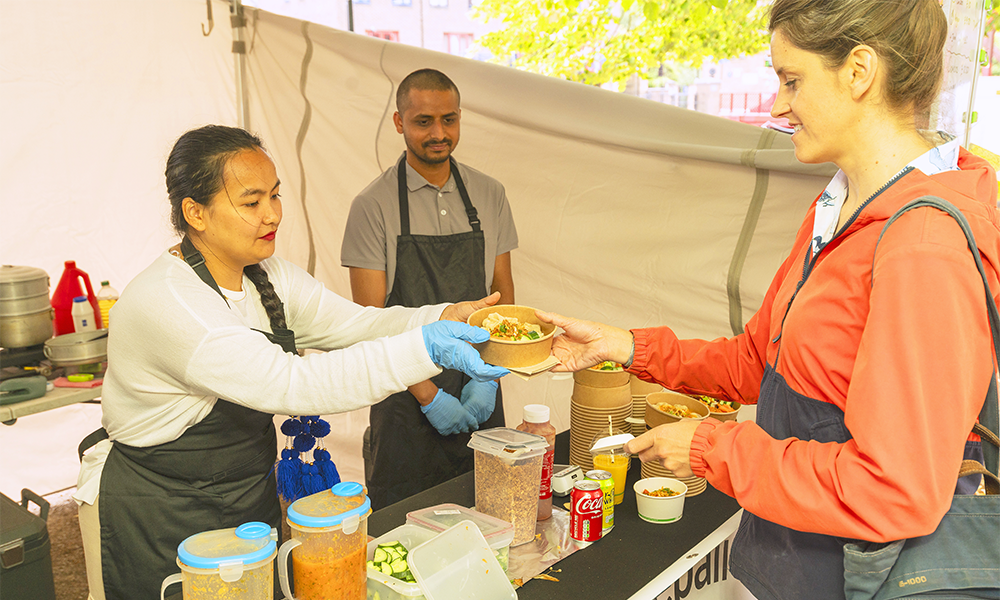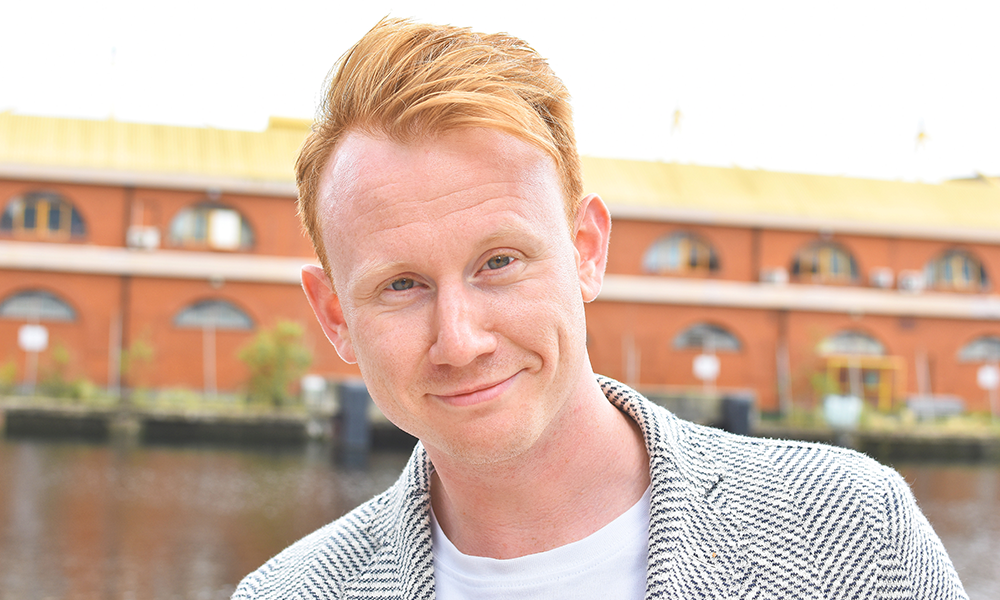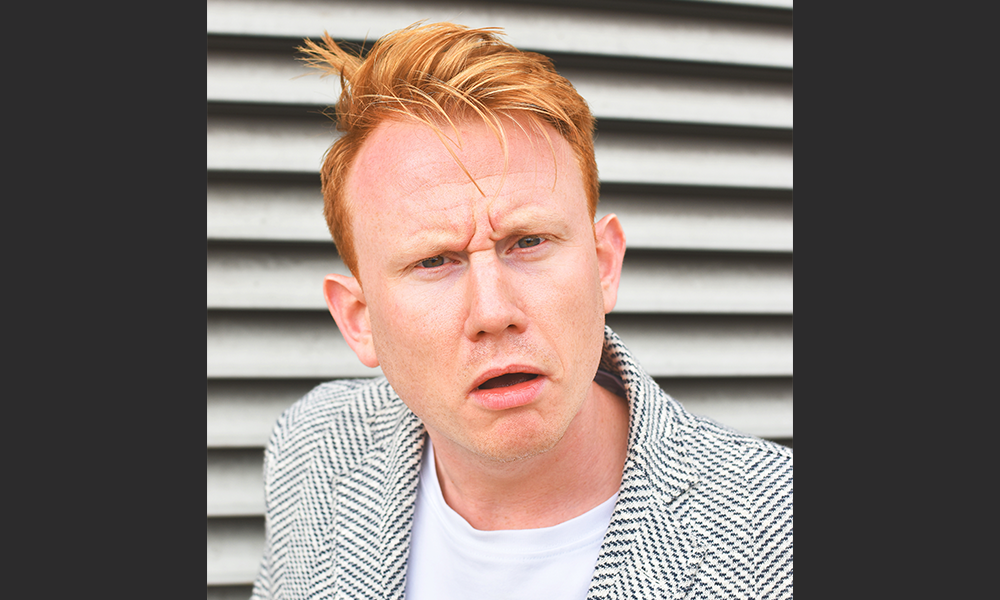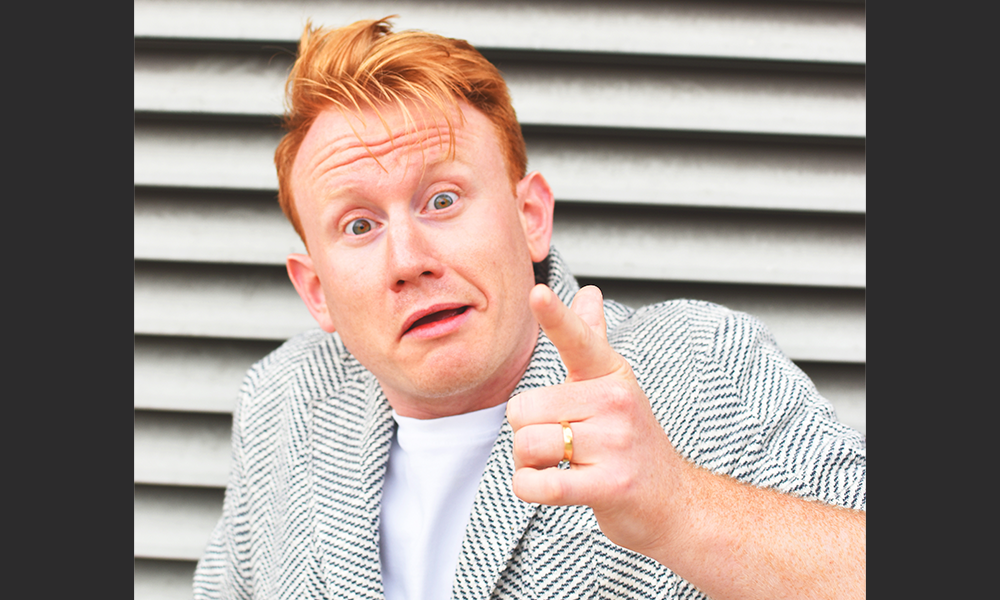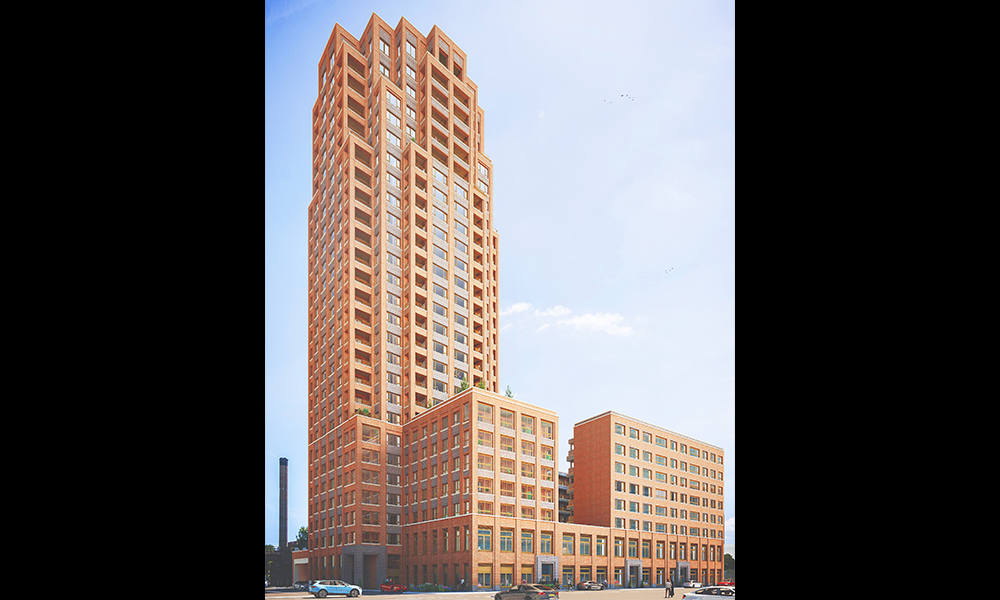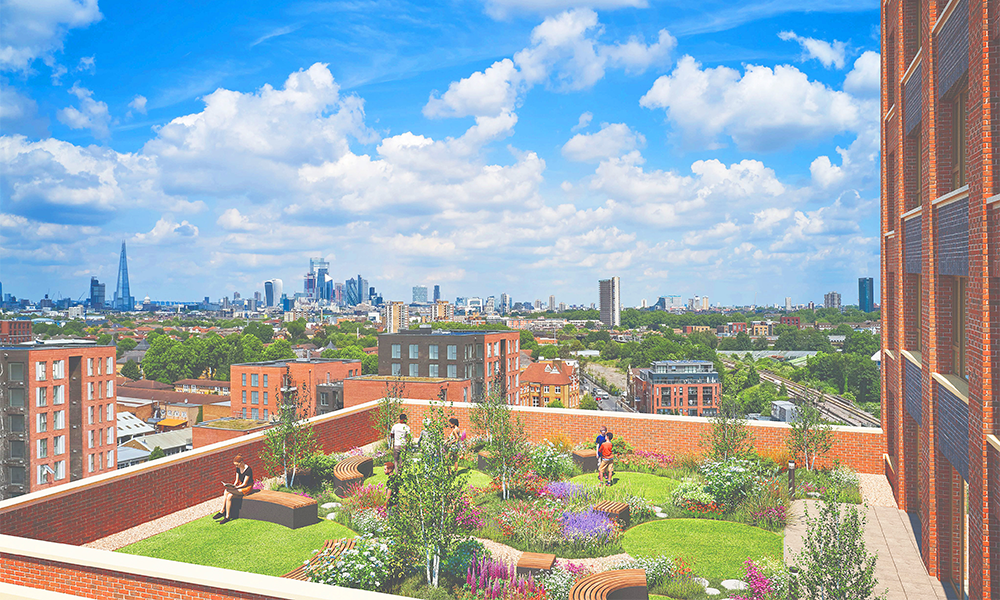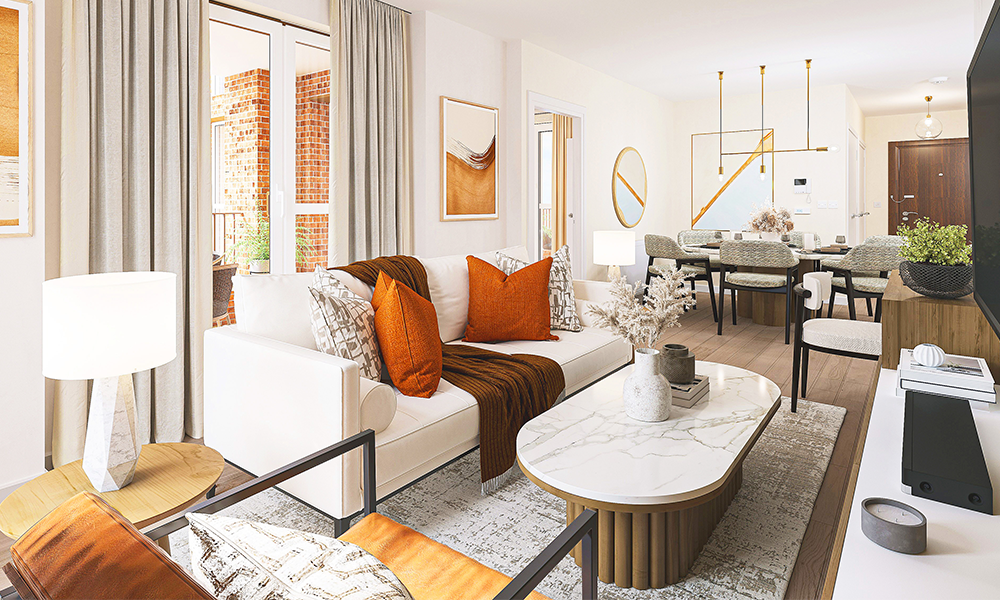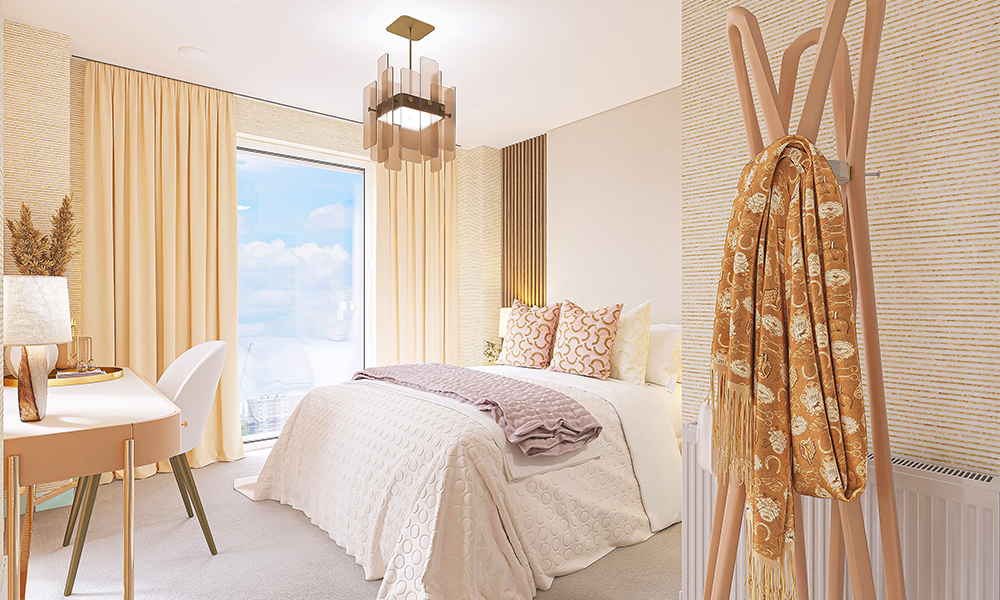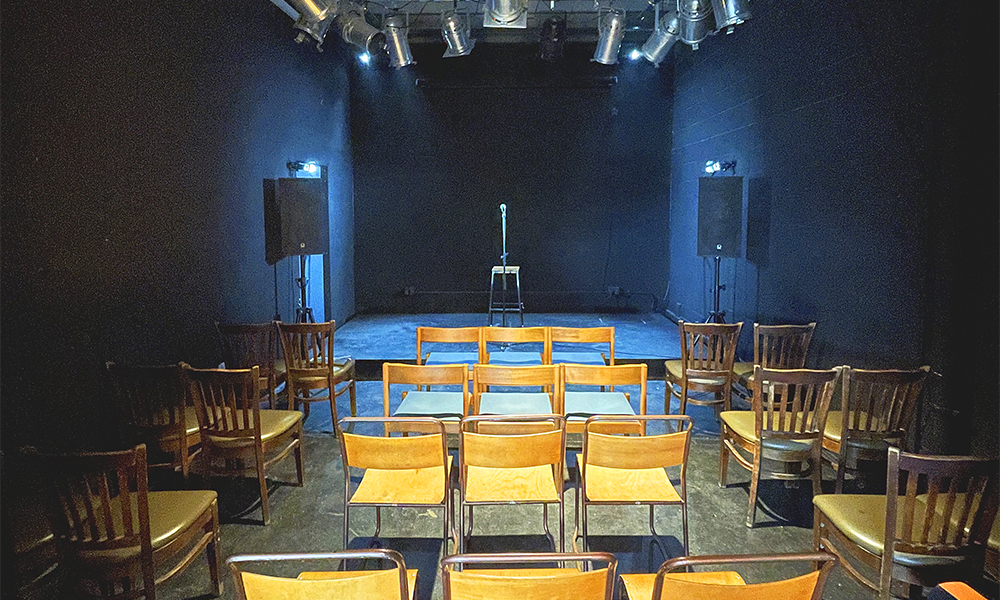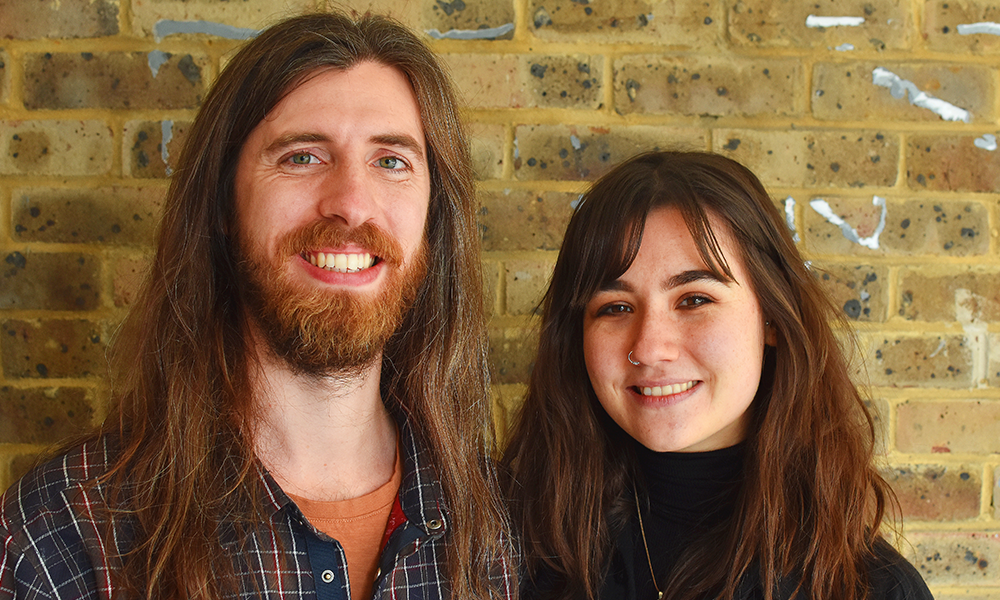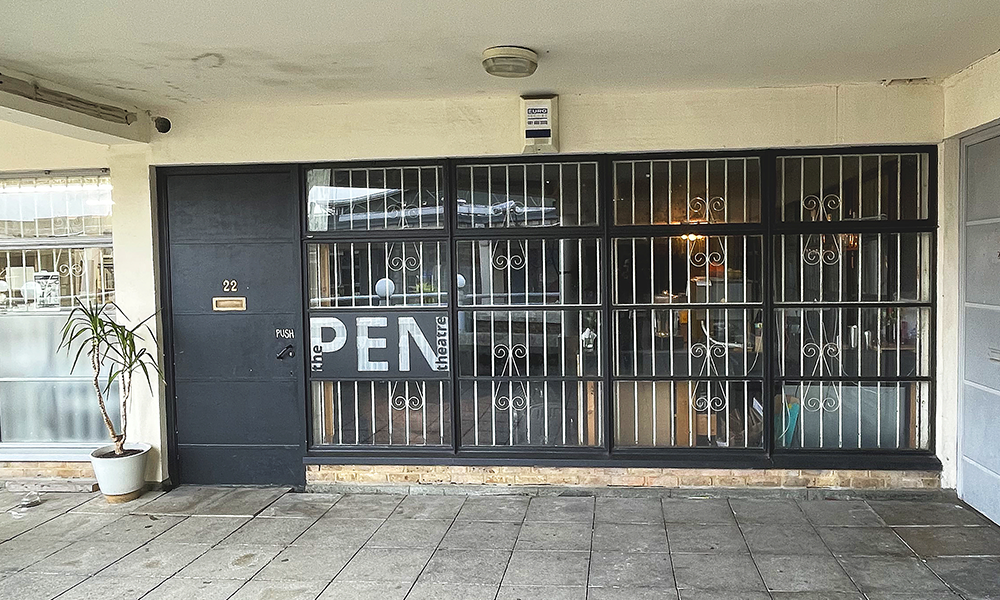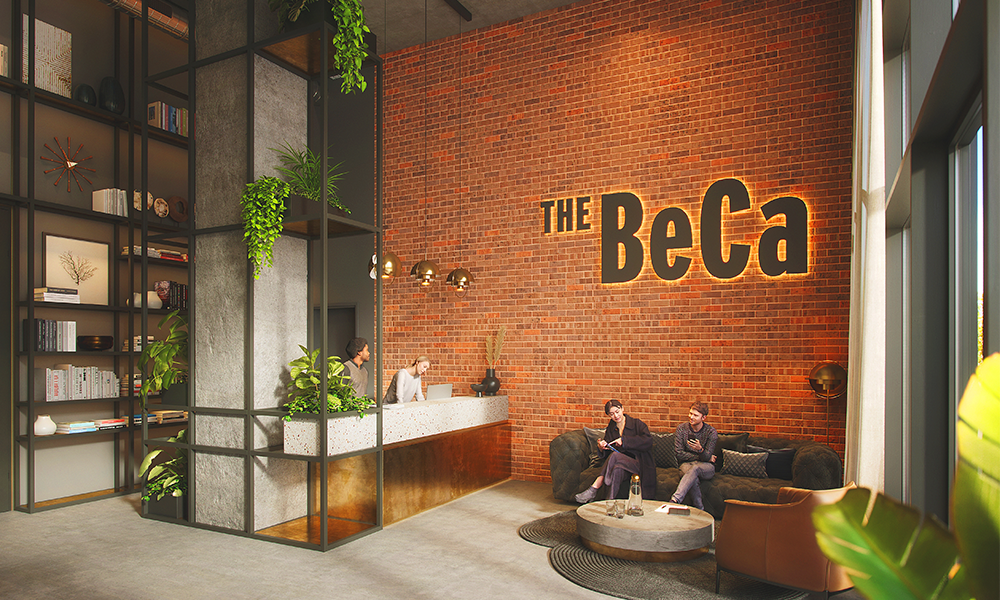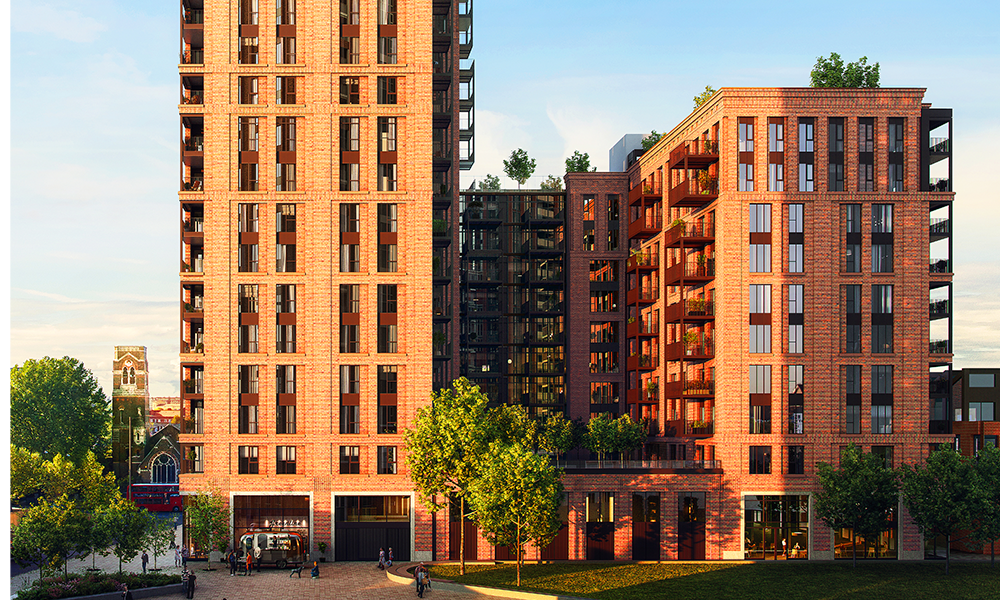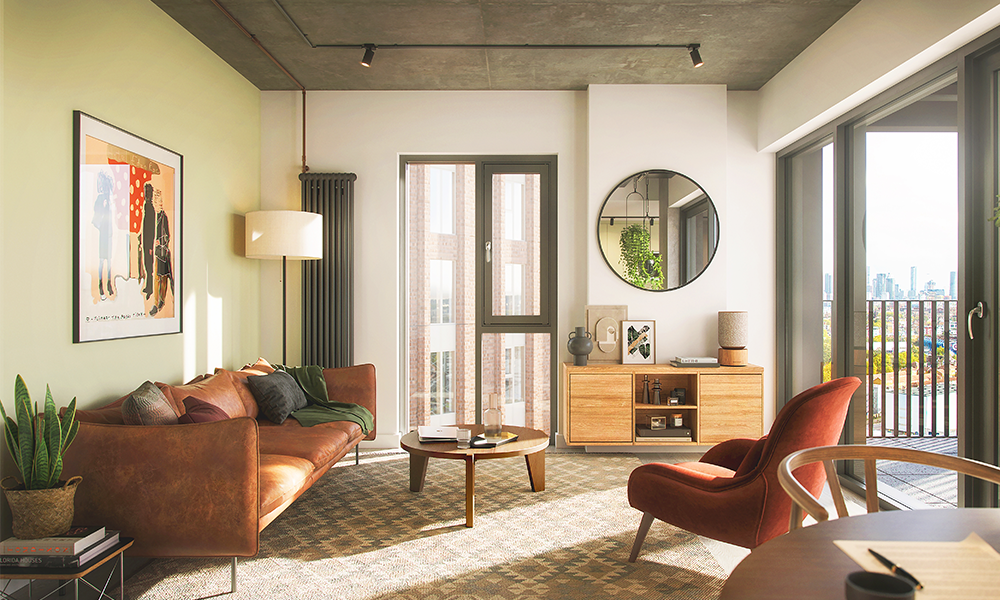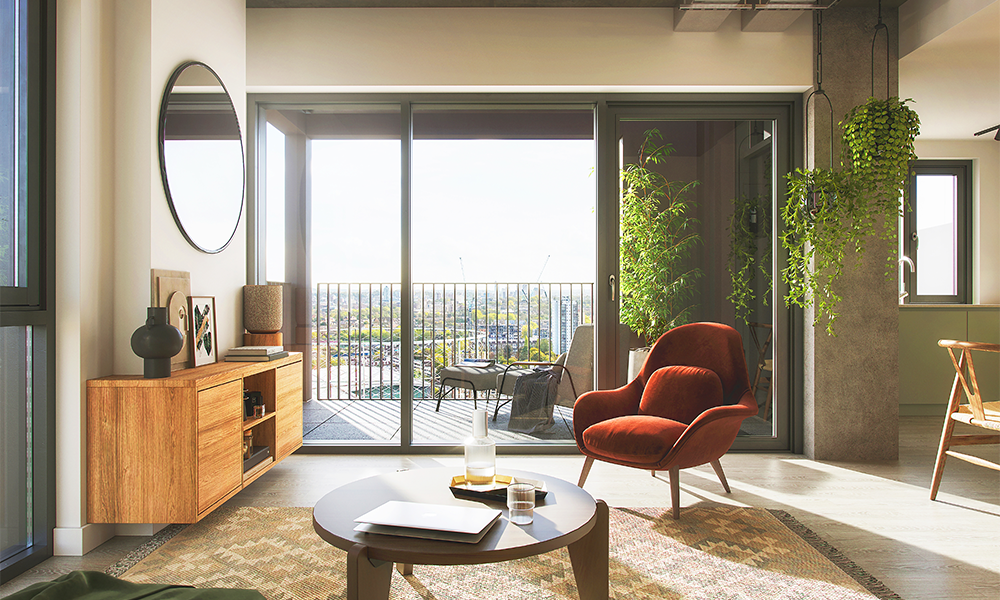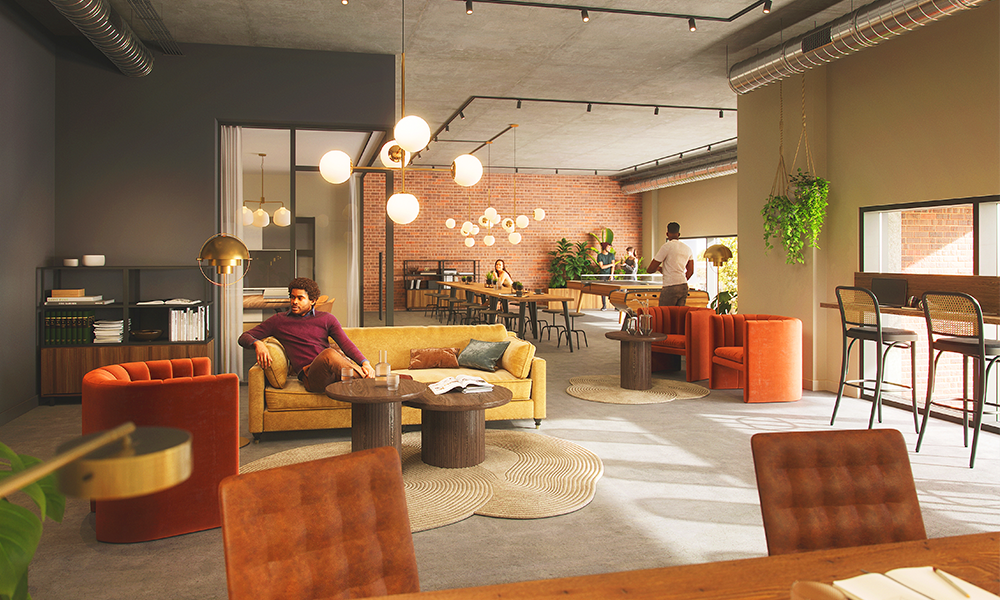Dr Susan Croft has curated Radical Rediscovery: Feminist Theatre In Britain 1969-1992
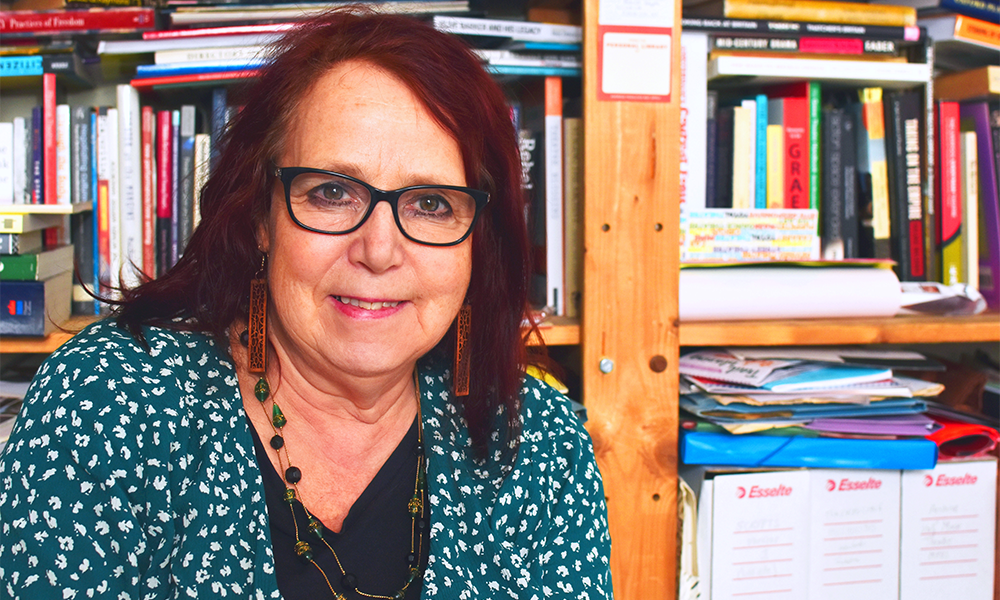
Subscribe to our free Wharf Whispers newsletter here
“How important it is to know whose shoulders we are standing on – to appreciate, critique, address and revisit the past – and to realise how much we lose if we don’t,” said Dr Susan Croft, associate artist at the London Performance Studios (LPS) and co-founder of Unfinished Histories, a project dedicated to preserving and celebrating alternative theatre in Britain from the 1960s to the 1990s.
You’ll forgive the lengthy description of Susan’s background.
Placing her, her work and its intent in context, is both vital to understanding the point of LPS’ forthcoming exhibition, and somewhat reflective of the wider project it’s part of.
That exhibition is Radical Rediscovery: Feminist Theatre In Britain 1969-1992, which is set to run at the organisation’s Penarth Centre home in South Bermondsey from November 8, 2024.
For Susan, a performance she saw as a teenager by narrowboat-based touring company Mikron at the Boxmoor Arts Centre in Hemel Hempstead, was the spark that ignited a lifelong passion for alternative theatre.
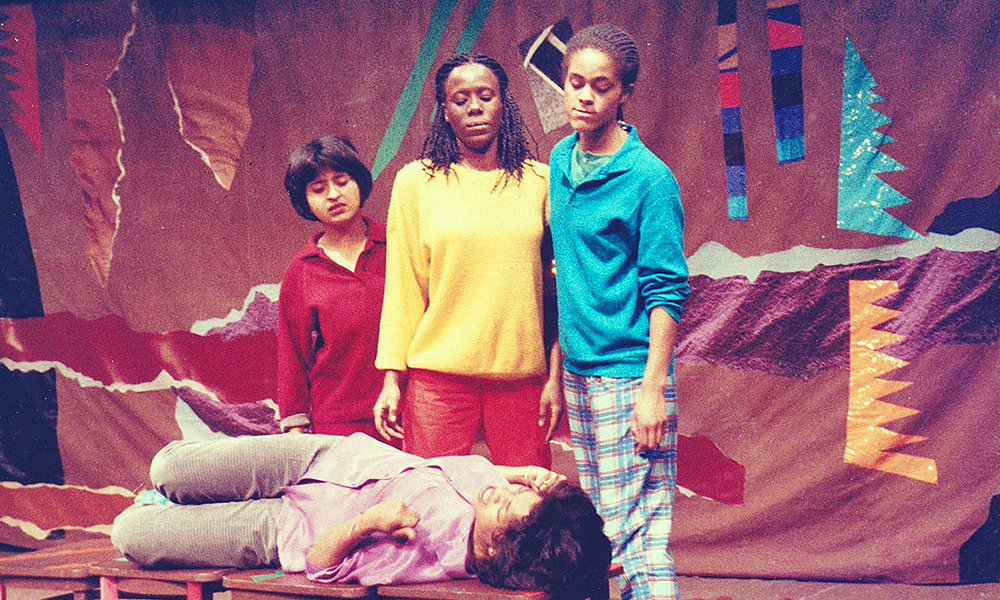
something different
“This was different to the plays I’d been taken to such as Shakespeare for English A-Level, which I loved too,” she said.
“It was something else – working class, about building canals with lots of songs.
“That was my first experience but then I started to search for it.
“The other thing I was hunting for at the time were copies of feminist magazine Spare Rib – I’d describe myself as becoming a feminist from pretty early on.
“While I loved theatre, which was very transformative and I felt could be amazing and life-changing, I wondered where the work by women was.
“There wasn’t a lot of it about at the tail end of the 1970s and in the early 80s.
“So that became my mission – to find feminist theatre – which was a large part of the alternative theatre movement.”
As a writer, curator and archivist who has worked in the arts, academia and museums as well as independently, Susan has created an exhibition that aims to highlight women’s contribution to the dramatic arts in the UK.
Featuring organisations such as the Women’s Theatre Group, Monstrous Regiment, Bloomers Siren, Theatre of Black Women, Munirah, Hard Corps, Blood Group and many more, it paints a rich picture of a scene that flew in the face of convention.
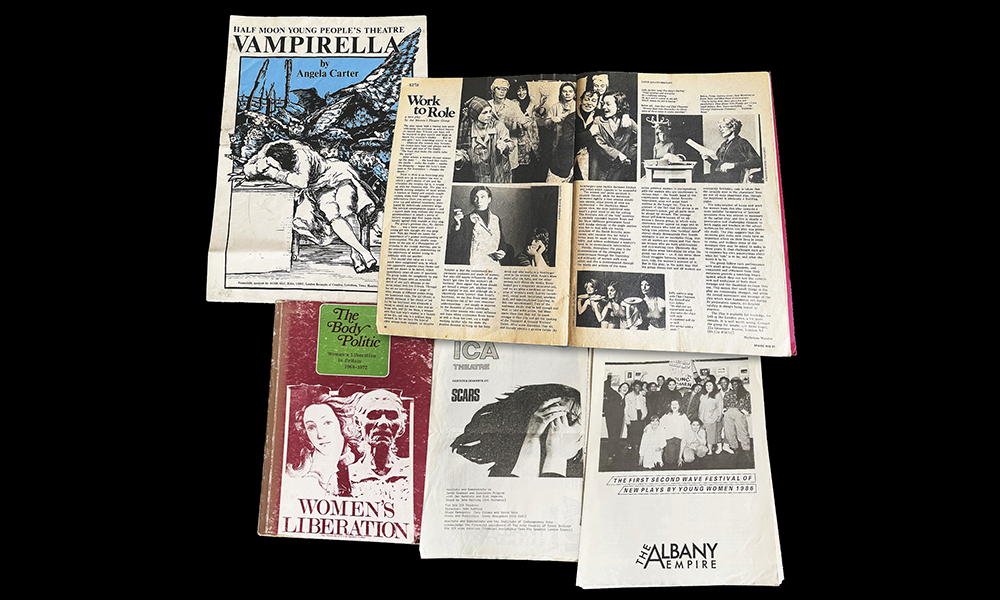
fighting for access to the arts
“Directors and playwrights were assumed to be male, most roles, especially good ones, were for men, most companies male dominated,” said Susan, whose published work includes She Also Wrote Plays from 2001, which features more than 400 women playwrights going back to the 10th century.
“In 2024 Indhu Rubasingham is at the helm of the National Theatre and women writers and directors are everywhere.
“The change is huge, has been hard-won and should be celebrated.
“But we still need to work to keep hold of the progress we have made and fight to extend parental rights, especially when funding is tight and the arts are disappearing from the state sector.
“We must fight for access to the arts for all women, as makers and as audiences.”
Taking as its starting point the first Women’s Theatre Festival, held in late 1973 at the Almost Free Theatre in Soho, the exhibition charts progress made over the years and honours the campaigns and work of an earlier generation.
Visitors can expect to discover multiple links to east and south-east London including productions at The Albany and the Half Moon Young People’s Theatre.
Alongside the exhibition will be the publication of Radical Rediscoveries – a collection of rare and unpublished scripts with an introduction by Susan – as well as a two-day symposium bringing women theatre-makers together on November 29 and 30, 2024.
“We’ll look at what was gained then and what has been lost – how we can hold onto our history, and learn from the past and how we can explore, share and revisit some of the amazing work that’s been achieved and set an agenda for the future,” said Susan.
“Creating such an exhibition is a huge challenge.
“It’s about the wealth and variety we can show and planting seeds in people’s imaginations – bringing material back to life for them.”
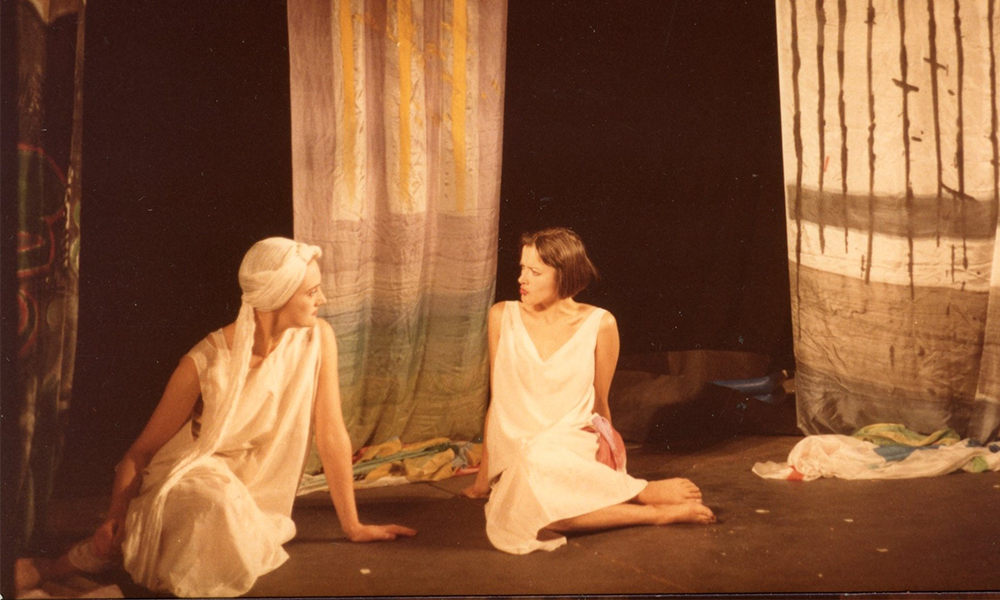
a wider project at London Performance Studios
That, in many ways, is also a distillation of the mission of FYFFI – Fifty Years Of The Fight For Inclusion – the umbrella project under which Radical Rediscoveries sits.
Over three years as part of Susan’s residency at LPS, she’s making use of Unfinished Histories’ extensive archives to mark three key anniversaries in the development of alternative theatre.
With the Women’s Theatre Festival in 1973 kicking things off, the first Gay Theatre Festival in Britain in 1975 and the publication of Naseem Khan’s report The Arts Britain Ignores, by the Commission for Racial Equality in 1976, will follow.
The plan is to research and revisit selected performances and companies relevant to those milestones via readings, workshops, this exhibition, symposium and publication.
“These were massively significant moments, but it’s not just what happened in those years, but all that has happened from them,” said Susan.
“We need to examine what’s happening now, what’s been achieved, what’s not been achieved, so it’s about both what are the priorities these days and how we remember that earlier work.”
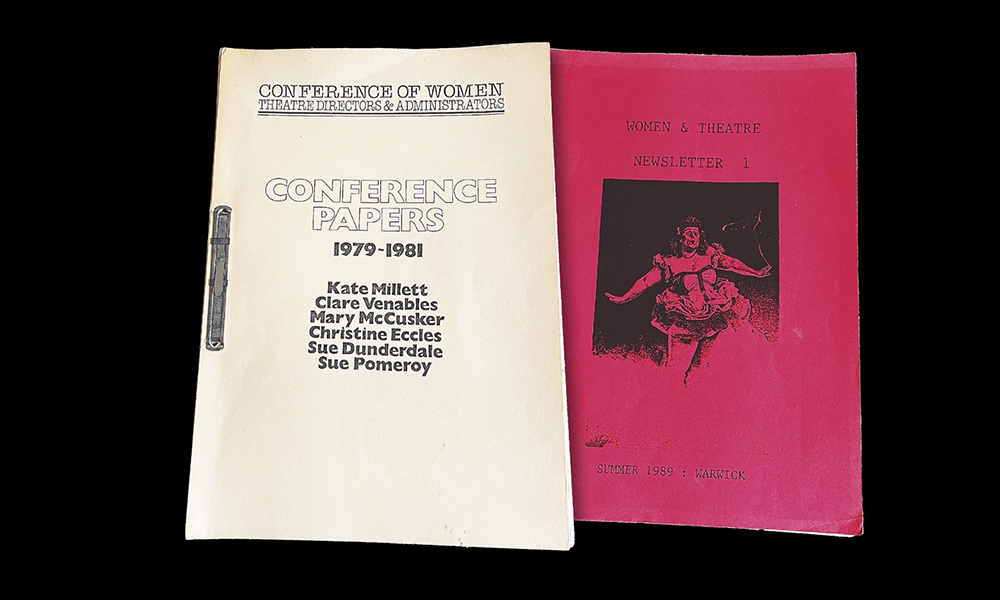
key details: London Performance Studios’ exhibition
Radical Rediscovery: Feminist Theatre in Britain 1969-1992 is set to run at the London Performance Studios from November 8 to December 1, 2024, from noon-5pm. Entry is free.
The venue is located at the Penarth Centre on Penarth Street, within walking distance of South Bermondsey railway station and Surrey Quays and Canada Water for Tube and Overground connections.
Find our more about the exhibition here
Read more: Canary Wharf unveils Eden Dock at the heart of the estate
Read Wharf Life’s e-edition here
Subscribe to our free Wharf Whispers newsletter here
- Jon Massey is co-founder and editorial director of Wharf Life and writes about a wide range of subjects in Canary Wharf, Docklands and east London - contact via jon.massey@wharf-life.com





